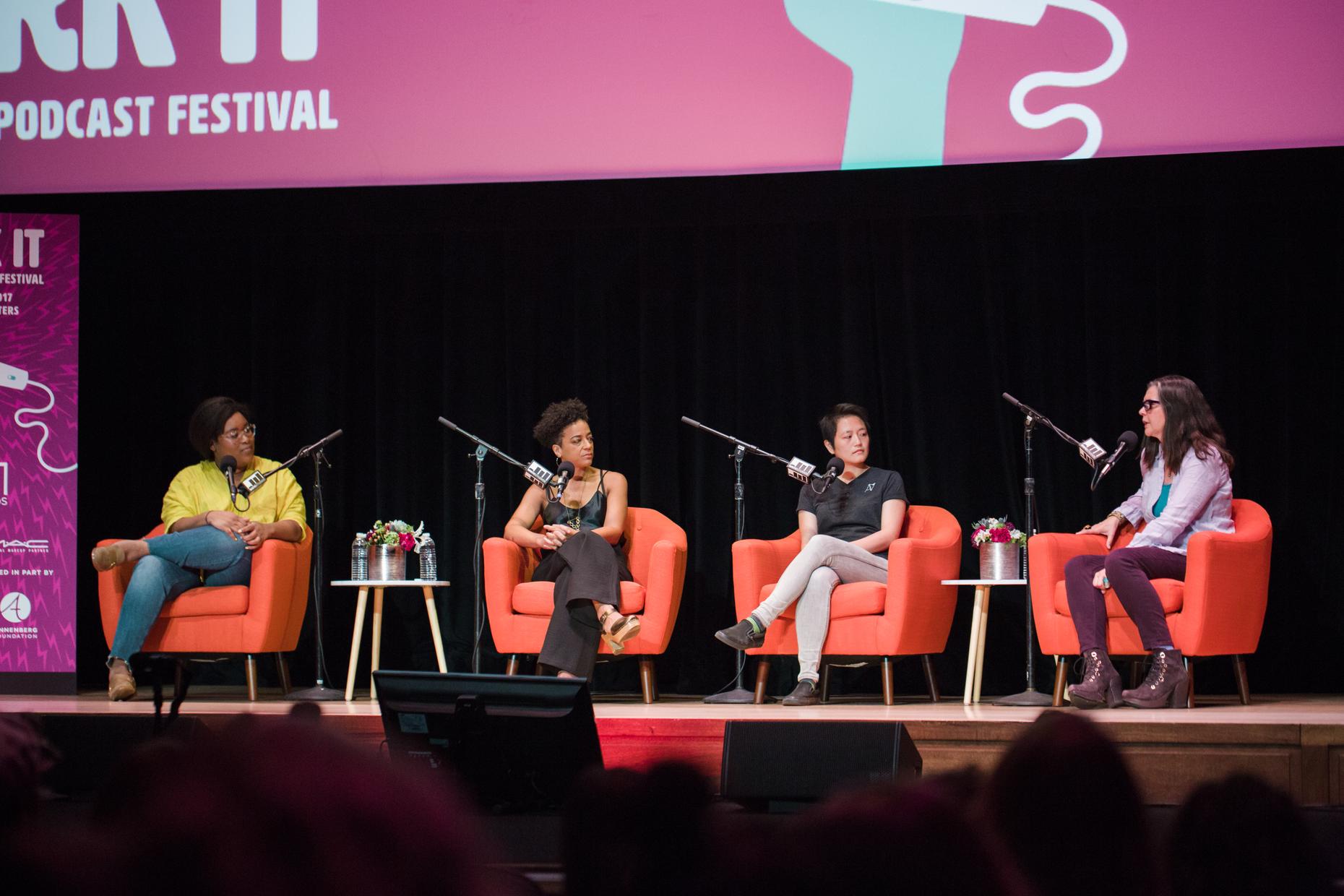Ijeoma Oluo and Rebecca Carroll on Race and Representation in JournalismPosted in Audio, Communications/Media Studies, Interviews, Literary/Artistic Criticism, Media Archive, Social Justice on 2018-05-18 19:26Z by Steven |
Ijeoma Oluo and Rebecca Carroll on Race and Representation in Journalism
Midday on WNYC
WNYC
New York, New York
2018-05-03
Duarte Geraldino, Guest Host
Ijeoma Oluo and Rebecca Carroll discuss the ethics of representation in Sally Kohn’s book, The Opposite of Hate: A Field Guide to Repairing Our Humanity. Oluo and Aminatou Sow take issue with how they were quoted in Kohn’s book, which sets up what they say is an inaccurate dichotomy between their positions. In a recent interview with Vanity Fair about the controversy, Oluo said the real focus should be that “we need to talk about the work that people of privilege should be doing, not how many more ways we can harm ourselves so that our humanity will be seen.”
 (L to R) Call Your Girlfriend’s Aminatou Sow, WNYC’s Rebecca Carroll, Nancy’s Kathy Tu, and Ear Hustle’s Nigel Poor speaking at the 2017 Werk It Festival. (Gina Clyne Photography ) |
Listen to the discussion here.

